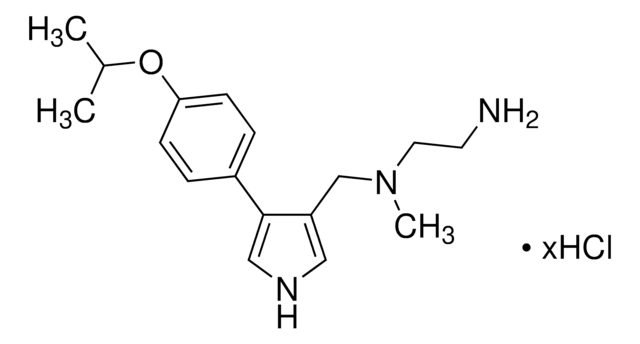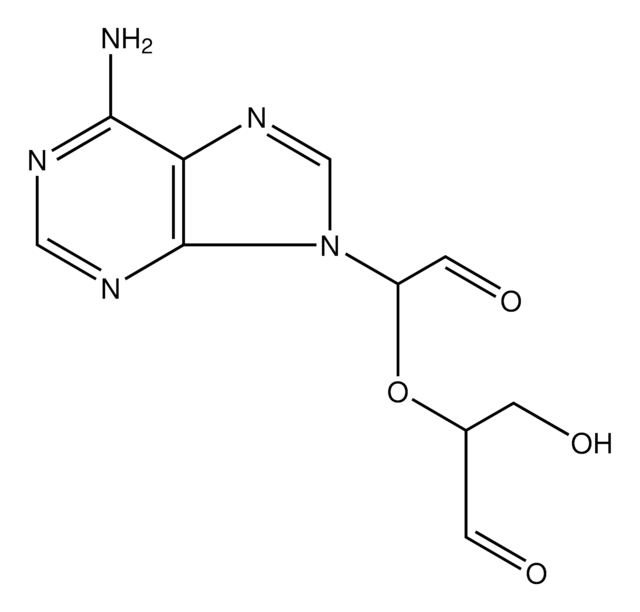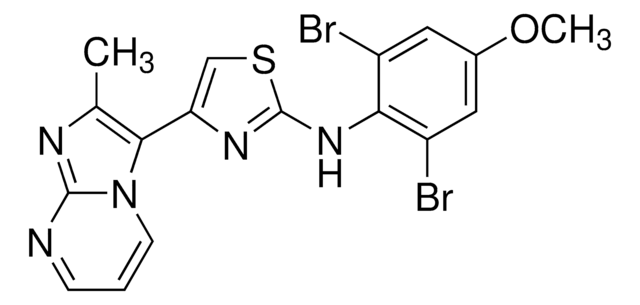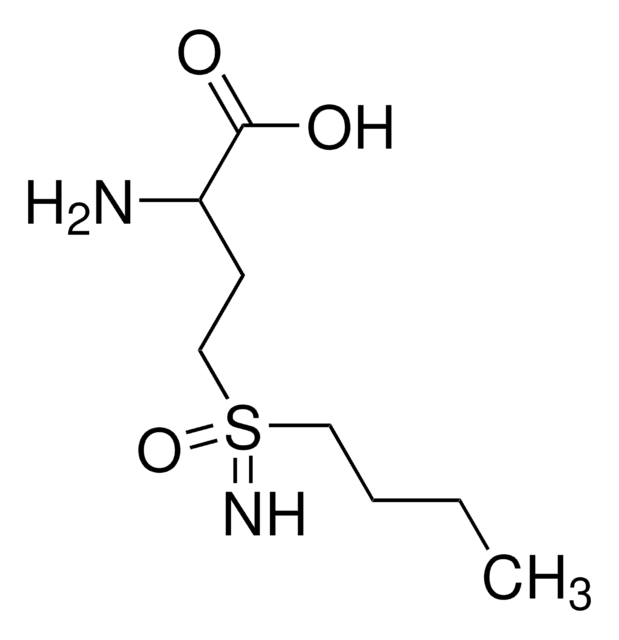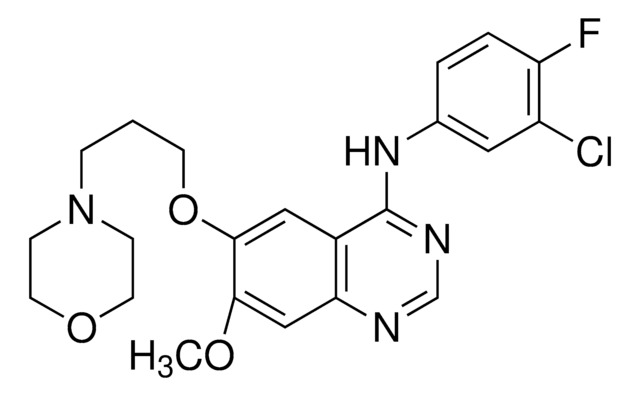Key Documents
SML1751
GSK591
≥97% (HPLC)
Synonim(y):
2-(Cyclobutylamino)-N-[(2S)-3-(3,4-dihydro-2(1H)-isoquinolinyl)-2-hydroxypropyl]-4-pyridinecarboxamide., EPZ015866, GSK 591, GSK3203591
About This Item
Polecane produkty
Poziom jakości
Próba
≥97% (HPLC)
Postać
powder
kolor
white to beige
rozpuszczalność
DMSO: 20 mg/mL, clear
temp. przechowywania
2-8°C
ciąg SMILES
O=C(NC[C@H](O)CN1CCC(C=CC=C2)=C2C1)C3=CC=NC(NC4CCC4)=C3
Działania biochem./fizjol.
SGC2096 is the negative control for the active probe, GSK-591. To request a sample of the negative control from the SGC, click here.
To learn about other SGC chemical probes for epigenetic targets, visit sigma.com/sgc
Cechy i korzyści
Inne uwagi
Kod klasy składowania
11 - Combustible Solids
Klasa zagrożenia wodnego (WGK)
WGK 3
Temperatura zapłonu (°F)
Not applicable
Temperatura zapłonu (°C)
Not applicable
Certyfikaty analizy (CoA)
Poszukaj Certyfikaty analizy (CoA), wpisując numer partii/serii produktów. Numery serii i partii można znaleźć na etykiecie produktu po słowach „seria” lub „partia”.
Masz już ten produkt?
Dokumenty związane z niedawno zakupionymi produktami zostały zamieszczone w Bibliotece dokumentów.
Nasz zespół naukowców ma doświadczenie we wszystkich obszarach badań, w tym w naukach przyrodniczych, materiałoznawstwie, syntezie chemicznej, chromatografii, analityce i wielu innych dziedzinach.
Skontaktuj się z zespołem ds. pomocy technicznej